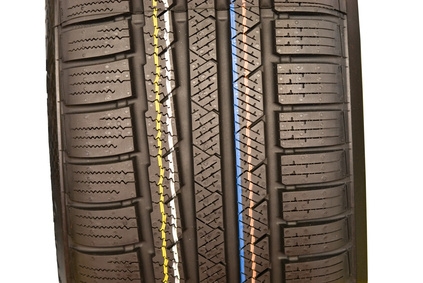
There are many types of tires, but the most basic is the passenger all-season tire, which is built to endure long-term wear while providing adequate performance in almost all conditions.
Passenger all-season tires are marked M+S for "mud and snow," but this indicates adequate performance in slightly muddy or light snow conditions. These tires will not perform as well as either dedicated off-road tires or snow tires.
Passenger all-season tires are built for general comfort, so they're not as tough against noise and harsh vibration as ultra-high performance tires (for sporty cars) or light truck tires. Passenger all-season tires are also designed for long wear, so you don't have to replace them as frequently as other tire types.
Passenger all-season tires are not designed for hard cornering, braking, and acceleration. They may squeal or slide under moderate to hard turns, and steering response may not be as sharp or immediate as would be expected from high-performance tires. Passenger all-season tires usually handle predictably in all kinds of weather and temperatures, however, which some other types of tires do not.
Passenger all-season tires usually cost about the same for other tires in the same size range but less than ultra-high performance tires in the same size range.
Major tire companies such as Goodyear (Assurance TripleTred), Michelin (Harmony), Bridgestone (Insignia SE200), and Yokohama (Avid S34B) all manufacture passenger all-season tires.